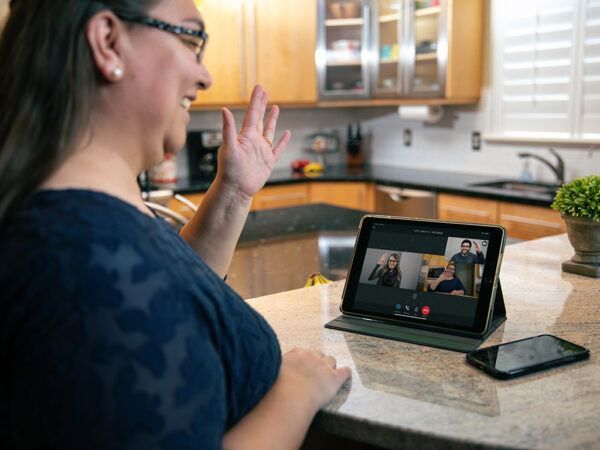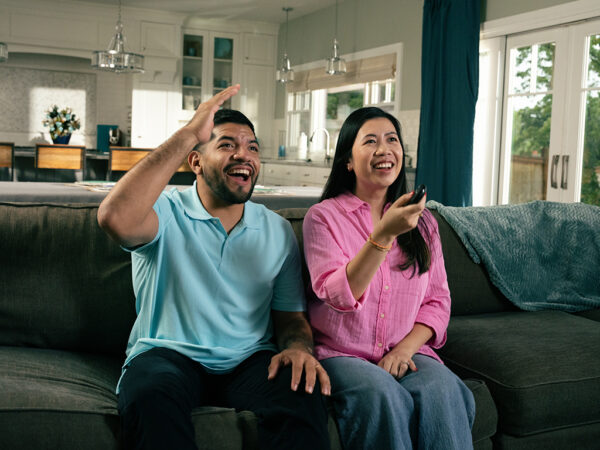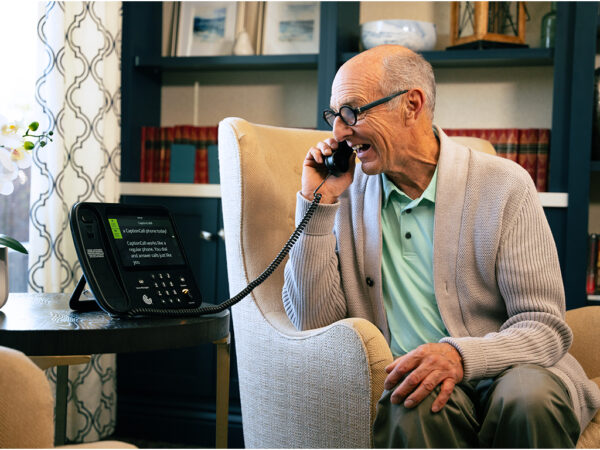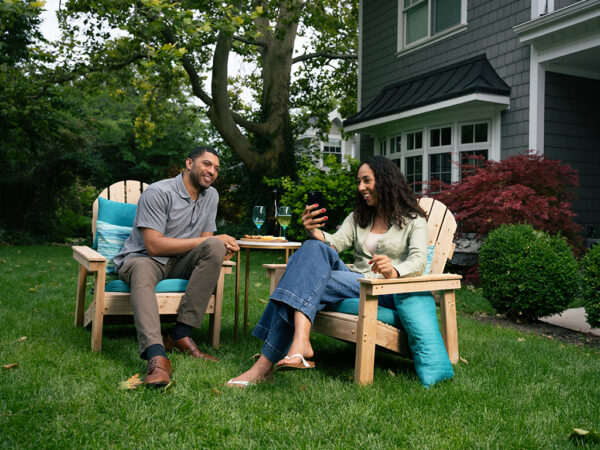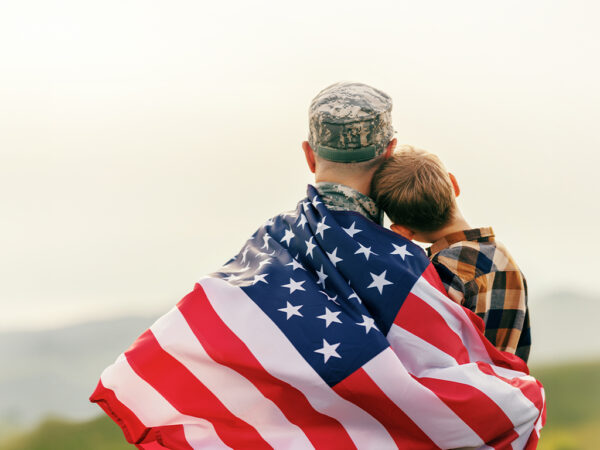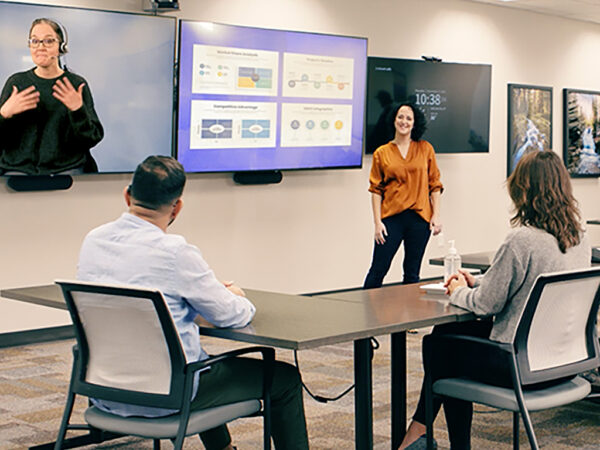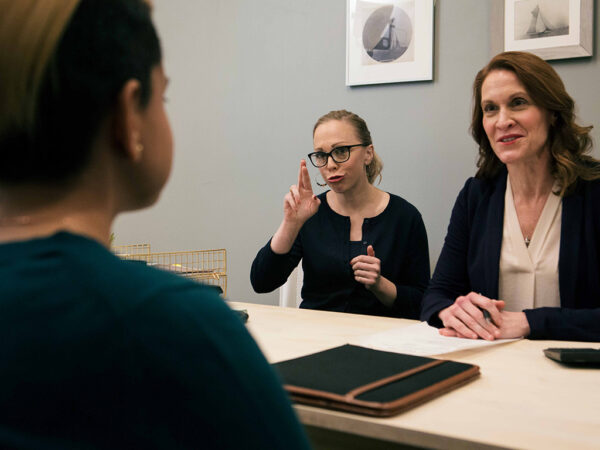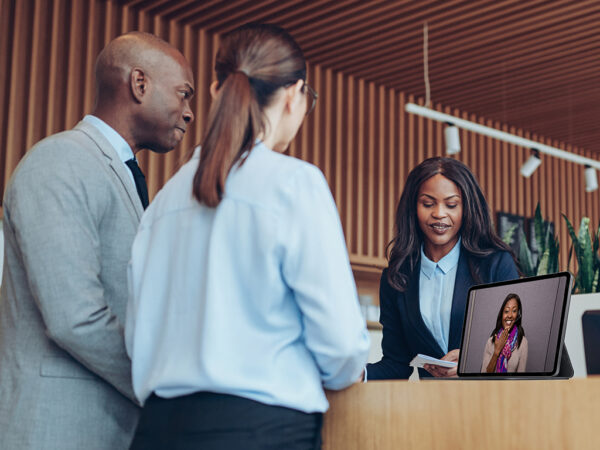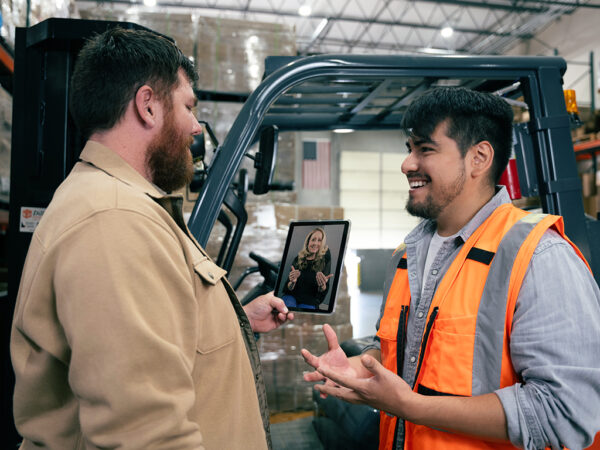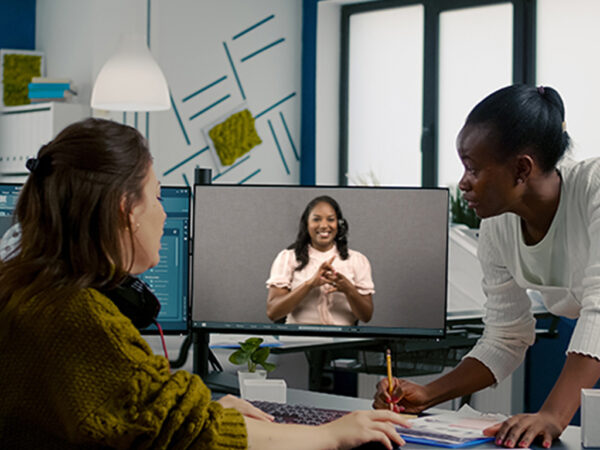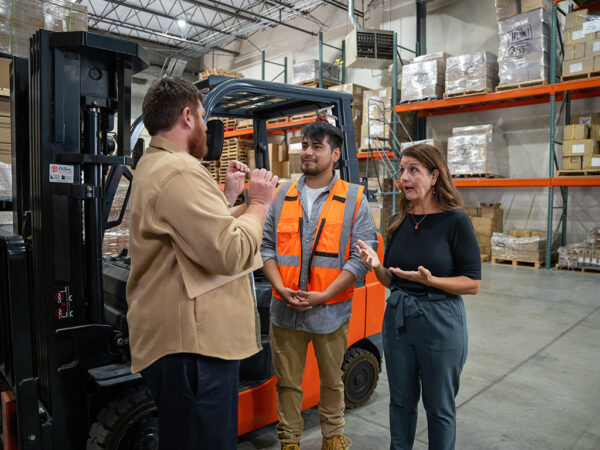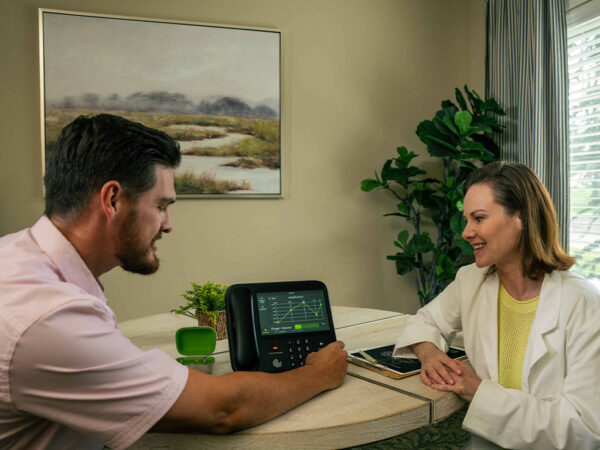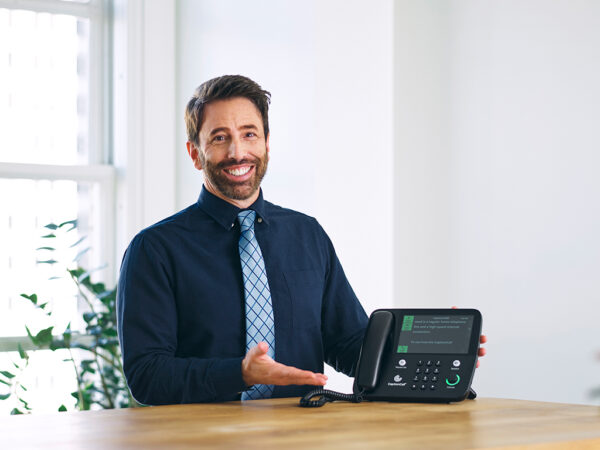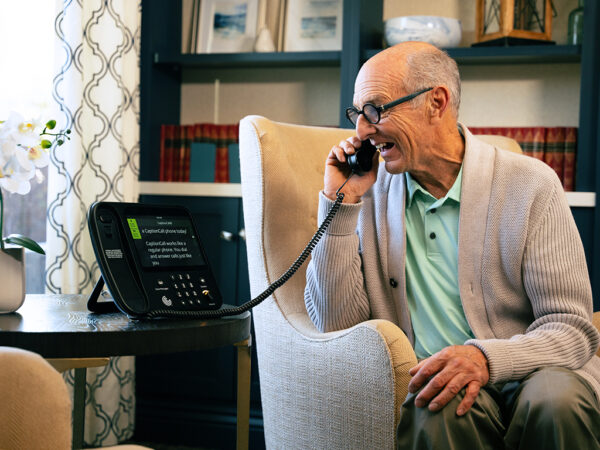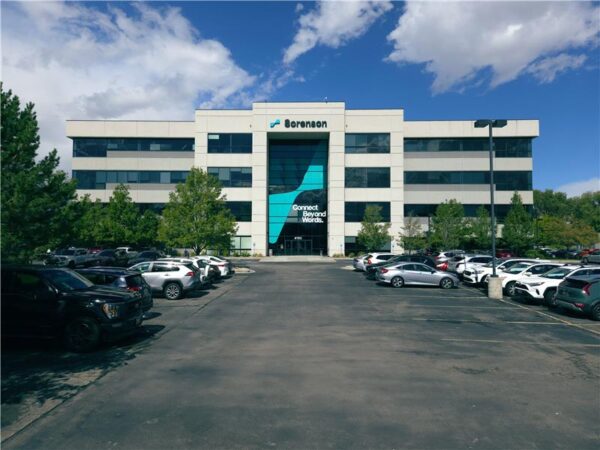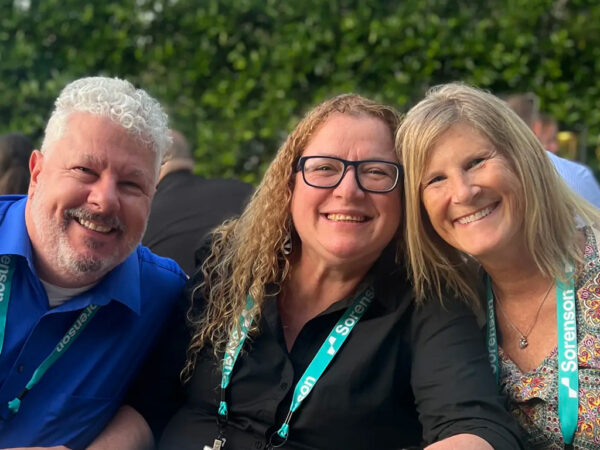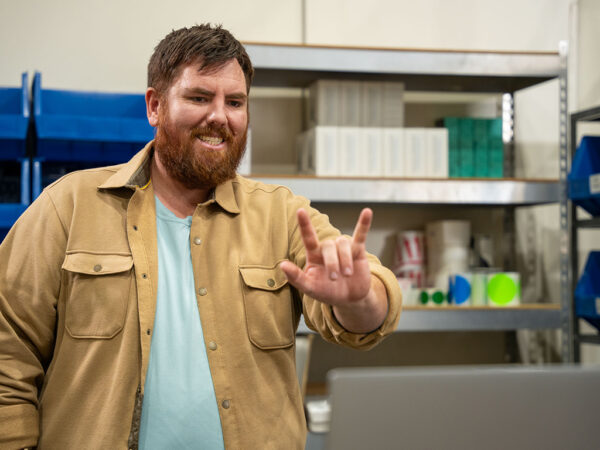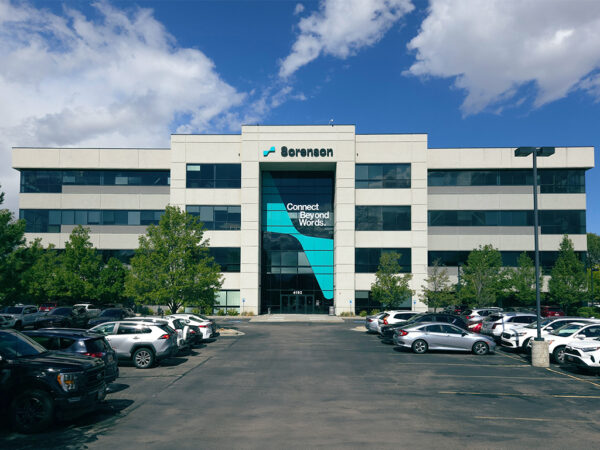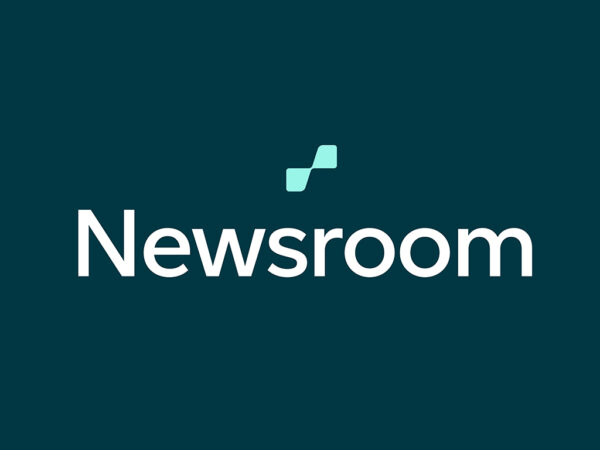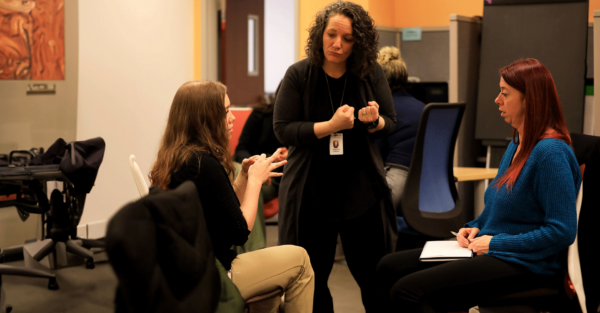Access Matters Everywhere, Including Sports Entertainment
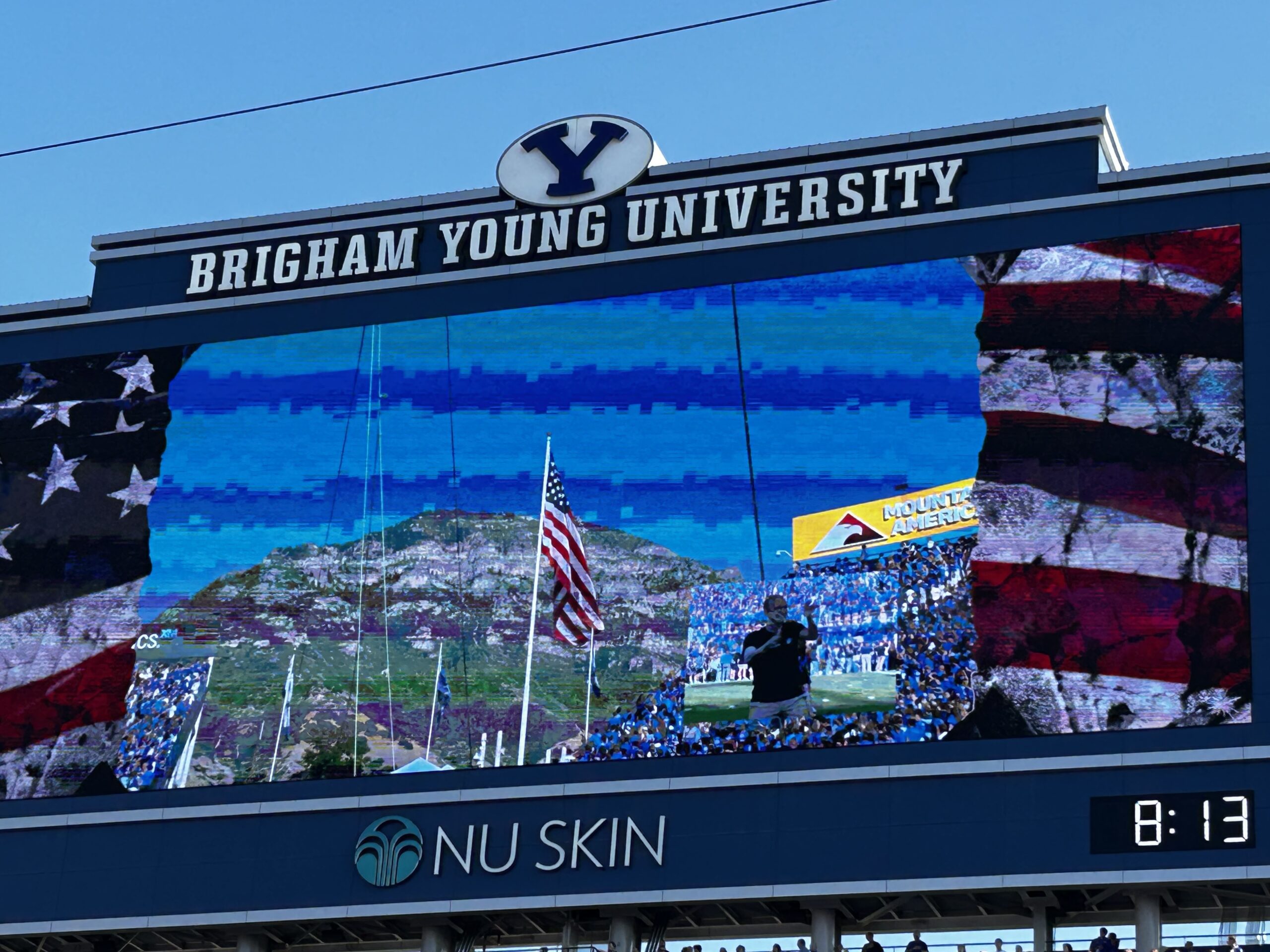
No Value (acf:field_669fe7fdb55ef)
We often see great stories about accessibility in public venues, but we experience frustrating ones too. How are people working to close the gaps that remain?
Accessibility is a popular topic today. Nowhere is that truer than at live events, including sports.
With the ADA, people with disabilities have seen public places, including stadiums, become more accessible. There are obvious signs:
- Elevators
- Service dog access signs
- Wheelchair seats
- Closed captions on TV and in movie theaters
- More interpreters available
Sorenson is one of the companies working to close language gaps at sporting events.
Testing at the U.S. Open
We took our latest products for businesses — Sorenson Express on-demand ASL interpreting and Sorenson Forum multilingual (25+ languages) translation and captioning — to the U.S. Open to talk to staff and fans. It was a busy event with limited accessibility options and people from all over the world who didn’t all speak English, and our diverse team was able to easily talk to people regardless of language differences.
Our Deaf teammates ordered concessions, got captions of game announcements, and struck up conversations with hearing fans. One of our Spanish-speaking team members had a natural conversation with a Chinese-speaking fan.
Pro sports accessibility survey
ESPN recently surveyed major league sports teams in the United States on whether they offer accommodations for fans with invisible disabilities (like autism, chronic pain, autoimmune diseases, mental health, deafness, or blindness).
The ESPN article with the survey results and accompanying interviews highlighted things we experience in our daily lives and some we may not have been aware of. Some examples:
- Only about a third of stadium concession stands offer printed menus
- Staff do their best to accommodate but are not always aware of the needs of people with disabilities, especially invisible disabilities
- More stadiums provide headphones for blind fans
- Architects specializing in accessibility are working with teams so that:
- newer stadiums have more accessible entrances/structures
- more stadiums have quiet places for neurodivergent fans
The article mentions that venues often have accommodations that fans and staff don’t know about. So don’t be afraid to ask — you might get what you need. And if that venue does not have the accommodation, your request may help them decide to provide it.
That’s what we call a win/win. 😊
Related articles
Deaf Community
News
News and updates about Sorenson VRS products and features and the Deaf community
Hearing Health Providers News
Hearing loss news and trends for hearing health professionals
Hard-of-Hearing
News
News and updates about living well with hearing loss and getting the most out of CaptionCall and CaptionCall Mobile

No Value (acf:field_67911dacbb423)

No Value (acf:field_67911d8bbb421)









